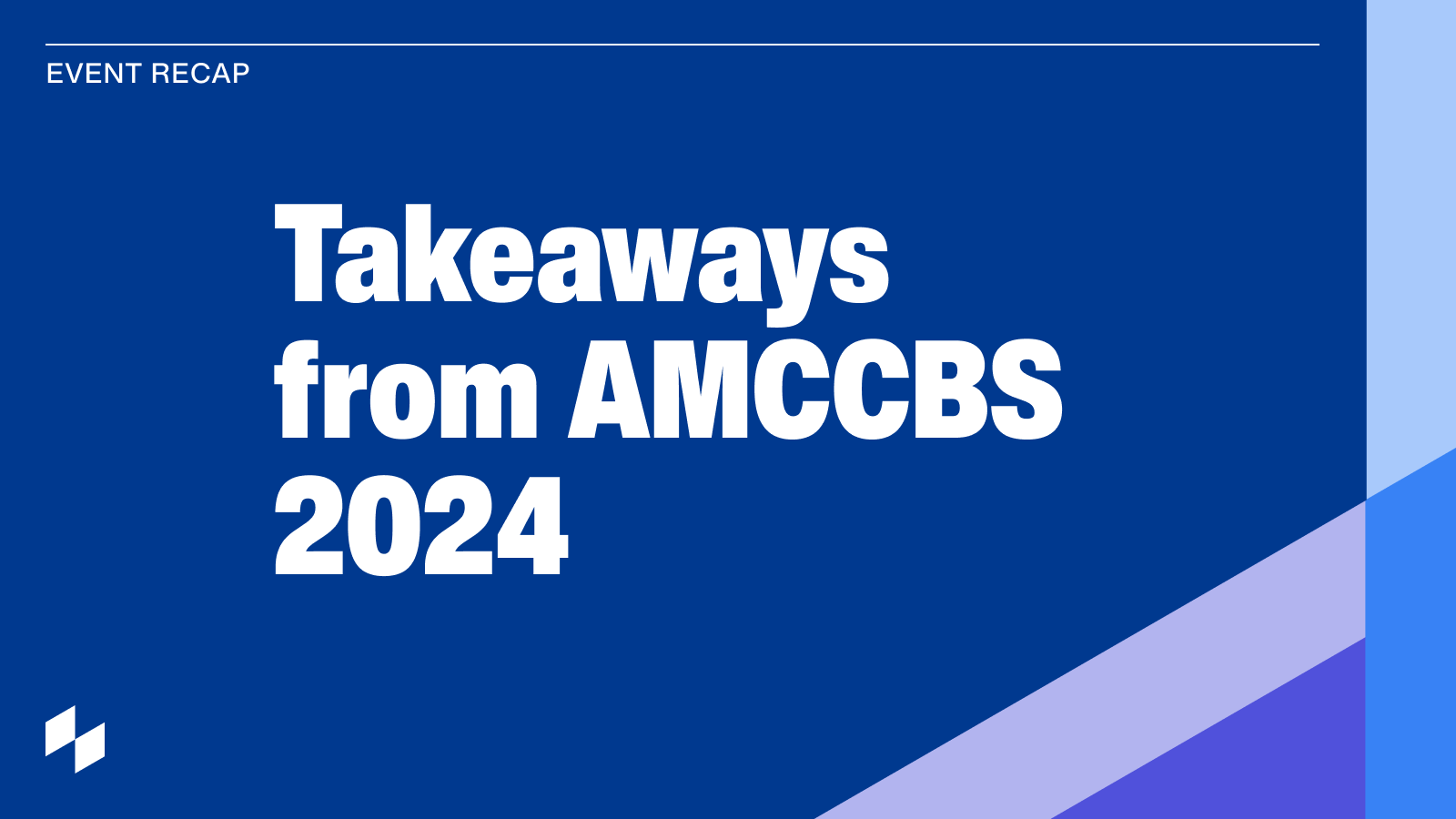Takeaways from the ACCC 50th Annual Meeting & Cancer Center Business Summit
At the ACCC 50th Annual Meeting & Cancer Center Business Summit, experts from Flatiron Health's clinical oncology and data science teams shared their perspectives on the transformative role of artificial intelligence and precision medicine in oncology treatment decisions.
What innovations are transforming point-of care decisions for clinicians and patients?
Two exciting areas of innovation are transforming point of care decisions in oncology: the integration of genomic data into EHR workflows and the advancements of artificial intelligence.
As precision medicine becomes the standard of care, it introduces a new set of challenges for clinicians, from ordering molecular profiling tests, to interpreting results and making personalized treatment decisions.
James Hamrick, MD, captured this sentiment in a pre-event discussion with the Journal of Clinical Pathways “So many new biomarkers, so many new approvals being made by the FDA every year to drive better outcomes for patients… dealing with that massive information and being able to make sure that you're able to implement it effectively [for] your patients is really important.”
This is an area where AI is poised to have an outsized impact—helping oncologists navigate the enormous volumes of administrative and clinical data, and empowering them to make informed, patient-centric decisions.
What’s really going on with AI?
AI and its subfields, such as Natural Language Processing (NLP), deep learning, and generative AI, are poised to revolutionize healthcare. While terms like business intelligence and predictive analytics are well-established, generative AI is a newer field healthcare professionals are grappling with.
Will Shapiro, VP of Data Science at Flatiron Health, who first honed his AI expertise at Spotify building personalized music recommendation engines using AI and ML, broke down the AI buzzwords.“With 10% of doctors using ChatGPT, it is something that everyone really needs to get educated about pretty quickly. I also think there are so many exciting ways that ML and AI have a role to play in the future of oncology,” Shapiro said.
Pre-trained models like ChatGPT (Generative Pre-trained Transformer) are particularly versatile, and capable of being fine-tuned for specific tasks. In oncology, this can range from summarizing visit notes to informing care decisions. Take, for instance, Flatiron Assist™, our clinical decision support platform. It utilizes machine learning algorithms to surface NCCN guidelines and site-preferred pathways, facilitating regimen mapping from existing regimen libraries. This process saves our administrative team time as they map regimens into the platform. By employing artificial intelligence to initiate the matching process and allowing human experts to verify its accuracy, we alleviate cognitive burdens and allocate resources to other critical clinical tasks.
However, the excitement around AI's potential in oncology comes with a note of caution. The rapid evolution of AI tools, while promising, raises significant concerns around data accuracy, bias, and ethical use. As AI continues to generate not just insights but also "hallucinations" or fabricated outputs, the need for stringent regulation and high-quality data to underlie AI algorithms becomes increasingly apparent.
How can clinicians safely evaluate AI tools for patient care and treatment decisions?
As AI reaches the peak of inflated expectations, the healthcare sector must balance the excitement around AI's potential with a rigorous focus on patient safety and quality. Stephen Speicher, MD, Head of Healthcare Quality and Patient Safety at Flatiron, identified three fundamental areas where healthcare providers must exercise caution when integrating AI tools into patient care:
-
Data Integrity: AI models are as good as the data they are trained on. Clinicians must scrutinize the data sources and standards AI tools use to ensure they are robust and reliable.
-
Bias and Equity: The potential for AI to perpetuate healthcare inequities is a significant concern. AI tools must be evaluated for biases, ensuring they are designed and trained on diverse data sets to provide equitable recommendations.
-
User Interaction: The safety of AI tools is not solely determined by their design but also by how healthcare professionals use them. Clinicians need to understand the limitations and intended use of AI tools, ensuring they enhance rather than impede critical thinking and decision-making.
By leveraging frameworks like this to evaluate the safety and quality AI solutions, providers can play a vital role in the AI ecosystem, ensuring the responsible use of AI in clinical practice.
How can EHR integrations and AI enhance precision medicine at the point of care?
The number of actionable biomarkers is growing, but opportunities remain to increase testing rates. Nate Wade, PharmD, Associate Director, Clinical Oncology at Flatiron, emphasized key areas that technology partners can focus to enhance precision medicine at the point of care, including streamlining molecular test ordering, making test results more actionable in the EHR, and standardizing molecular data interpretation.
Flatiron’s EHR-embedded solution supports this by integrating directly with prominent molecular labs so that clinicians can order tests, track the order’s status with real-time updates, and view results right within the EHR. Turn-key EHR integrations like this are particularly beneficial for under-resourced institutions like community oncology practices.
Looking ahead, genomic data standardization is essential for the evolution of precision medicine. Despite advancements like HL7 standards, the variability in interpreting genomic results remains a challenge. Establishing robust data standards and maintaining high-quality datasets are foundational steps for developing AI tools solutions that can effectively interpret and utilize genomic data to enhance the precision medicine ecosystem.
How can we learn more?
The Flatiron team valued the collaborative discussions that took place at AMCCBS. Let’s keep the conversation going! Come speak with us next at the Community Oncology Alliance (COA) Conference, April 4 - 5 in Orlando, FL. Our experts will be onsite, eager to talk about AI, precision medicine, and other pressing trends in oncology care. Schedule some time with us at COA, or book time to learn more about OncoEMR® and Flatiron Assist™

